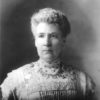calsfoundation@cals.org
Robert Marshall Utley (1929–2022)
Robert Marshall Utley was a pioneer in the field of public history. Most of Utley’s early work was with the U.S. Army and the National Park Service (NPS). After serving as historian for the Joint Chiefs of Staff, Utley was appointed chief historian of the NPS in 1964. In 1977, Utley became the deputy executive director of the President’s Advisory Council on Historic Preservation. He was influential in the establishment of the Fort Bowie, Hubbell Trading Post, Golden Spike, and Fort Davis National Historic Sites as units within the NPS. Utley also authored several books focusing on the American West and topics in Native American history.
Robert M. Utley was born in Bauxite (Saline County) on October 31, 1929, to Don Williams Utley, a chemist who worked for the Aluminum Company of America (Alcoa), and Valeria Haney Utley. Utley’s father moved the family to New Kensington, Pennsylvania, when Utley was only six years old to work at Alcoa’s chemical laboratories there. The family stayed in Pennsylvania from 1936 to 1938, when Utley’s father was transferred to the Alcoa plant in Lafayette, Indiana. As a boy, Utley attended school in Dayton, a small town outside of Lafayette. Utley was also a grandson of former Arkansas attorney general J. S. Utley.
Utley’s love of history was inspired by the 1942 Errol Flynn film They Died with Their Boots On, in which Flynn played General George Armstrong Custer. The film inspired Utley to become a historical aide at Custer Battlefield, now Little Bighorn Battlefield, in Montana. While working as a soda jerk, Utley saved the money to buy a bus ticket to Montana in 1946. Custer Battlefield superintendent Edward S. “Old Major” Luce told the sixteen-year-old Utley that he was too young to work there. However, after corresponding with Utley, Luce asked the NPS regional office in Omaha to waive the age requirement, and Utley worked as a historical aide at Custer Battlefield that summer and every summer during his college years as well.
After graduating from high school, Utley attended Purdue University, where he earned a BS in history and then earned a master’s degree in history from Indiana University in 1952. The same year, Utley was acting superintendent of Custer Battlefield National Monument for one month.
In 1952, Utley enrolled in officer candidate school with the U.S. Army. Utley was sent to the Infantry Officers Candidate School at Fort Benning, Georgia. Utley graduated number two in his class with the rank of second lieutenant. In 1954, Utley was appointed to the historical section of the Joint Chiefs of Staff at the Pentagon. Utley and others worked to document the history of the role of the Joint Chiefs of Staff in Indochina and produced a book on the topic that helped inform policymaking of the time. Utley was planning to return to Indiana University to pursue his PhD under Oscar Winther on the Ghost Dance and Wounded Knee when he was asked back to the NPS. In 1957, Utley returned to the NPS, where he served as regional historian for the Southwest Region in Santa Fe, New Mexico.
Between 1957 and 1964, Utley worked mostly for the Historic Sites Survey, beginning with Fort Bowie and then Hubbell Trading Post, among others. In 1964, Utley transferred to Washington DC, where he became chief historian for the NPS. In 1971, Utley became director of the Office of Archaeology and Historic Preservation. In 1973, he was appointed assistant director for Park Historic Preservation. In 1977, Utley left the NPS to become deputy executive director of the President’s Advisory Council on Historic Preservation, a position he held until his retirement in 1980.
Also in 1980, Utley married Melody Webb, his second wife, who worked as regional historian in Santa Fe f from 1980 to 1989. She went on to be superintendent of the Lyndon B. Johnson National Historical Park in Texas, followed by four years as assistant superintendent of Grand Teton National Park.
After her retirement in 1996, the Utleys moved to Georgetown, Texas. In 2009, they moved to a retirement community in Phoenix, Arizona. In October 2016, Utley published his twenty-second book, one comparing Billy the Kid and Ned Kelly, with Yale University Press. Before that, in April 2015, Utley was inducted into the Western Writers of America Hall of Fame. In 2017, Utley was diagnosed with a pulmonary embolism that caused him to suffer from pulmonary hypertension. He died in Scottsdale, Arizona, on June 7, 2022, following complications from what had been characterized as a simple surgery. Utley had two sons from his first marriage.
For additional information:
Foppes, Ellen K., and Robert M. Utley. “Present at the Creation: Robert M. Utley Recalls the Beginnings of the National Historic Preservation Program.” Public Historian 24 (Spring 2002): 61–81.
“In Memoriam: Robert M. Utley.” Western History Association, June 8, 2022. https://www.westernhistory.org/news/12810144 (accessed March 31, 2023).
Sellars, Richard W., and Melody Webb. “An Interview with Robert M. Utley on the History Preservation in the National Park Service—1947–1980.” Southwest Cultural Resources Center, Professional Papers No. 16. https://www.nps.gov/parkhistory/online_books/utley/utley.htm (accessed March 31, 2023).
Cody Lynn Berry
Benton, Arkansas






Comments
No comments on this entry yet.